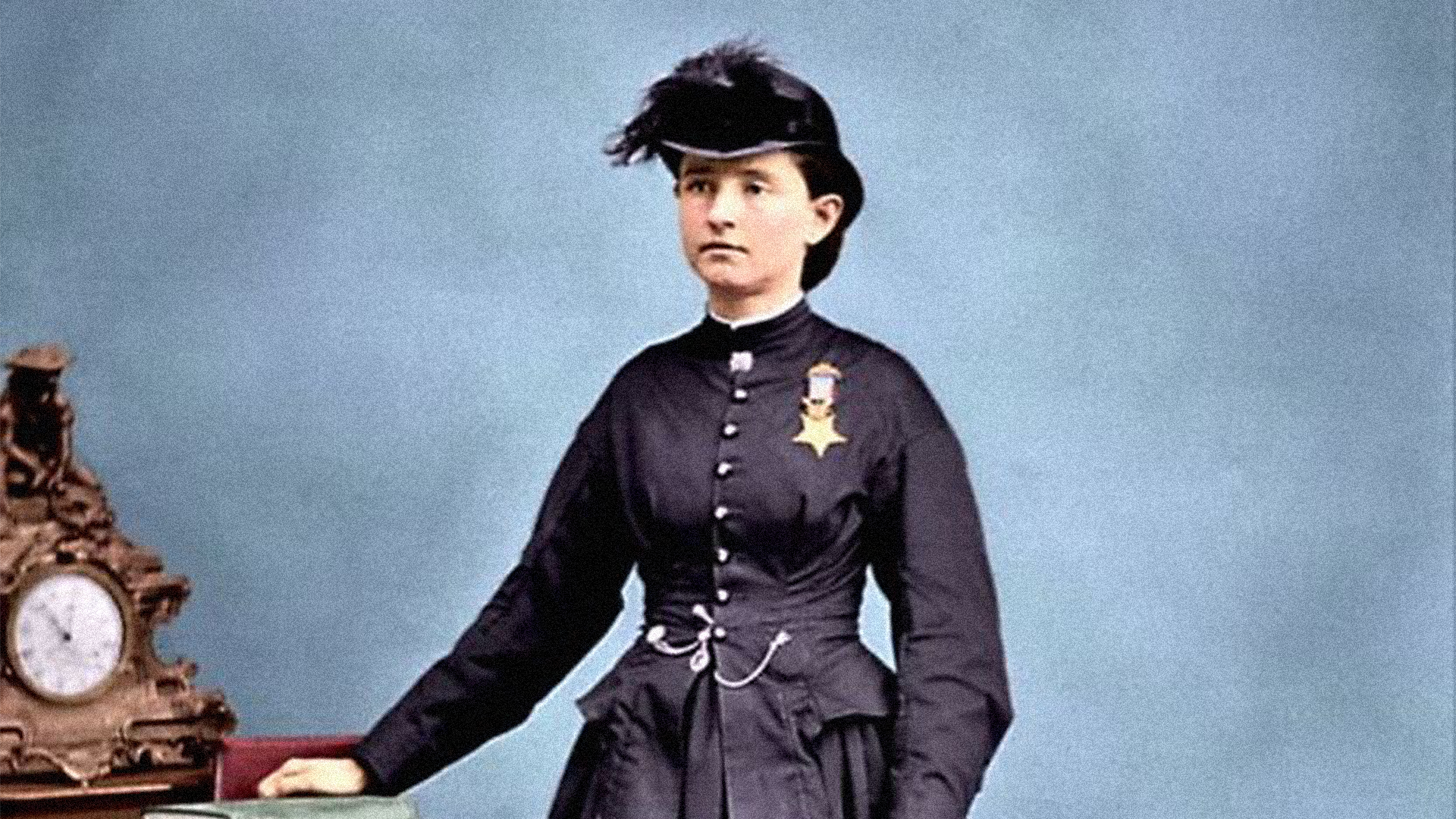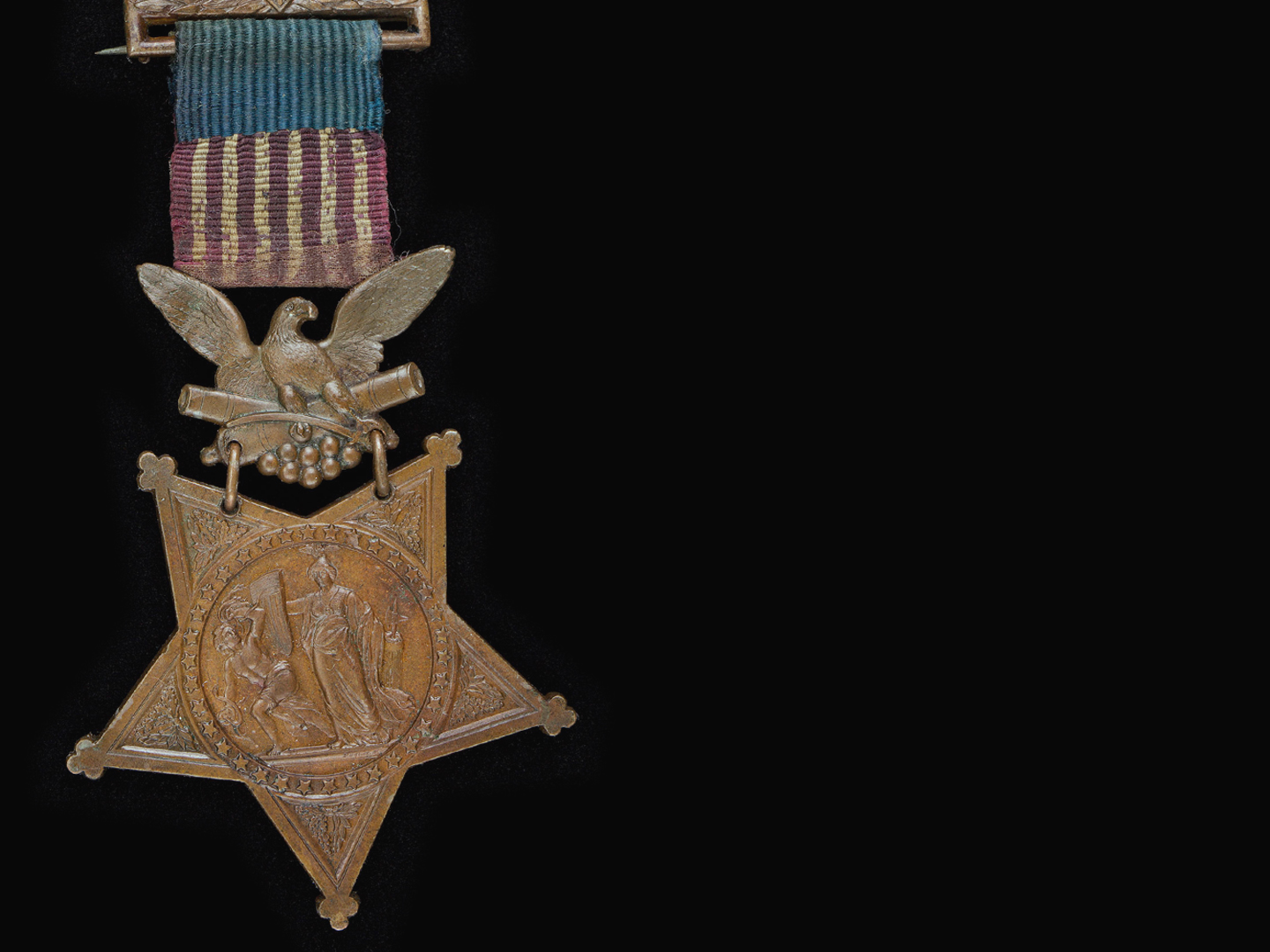Abstract
Dr. Mary Edwards Walker is the only woman to receive the Congressional Medal of Honor, awarded for her work as a surgeon during the Civil War. The Dr. Mary E. Walker Collection includes Dr. Walker’s correspondence, diplomas, and other official documents. The collection also features the work of Helen Hay Wilson, a descendent of Dr. Walker who worked to reinstate her medal posthumously in the 1970s.
Scope and Content
This collection includes both primary and secondary resource documents. The collection features correspondence between Dr. Walker and her family, friends and colleagues; original photographs of Dr. Walker and her family; and Dr. Walker’s school ephemera. Additionally, the collection boasts a substantial body of newspaper clippings both during her life and following her death in 1919 regarding her achievements and fights both in the Civil War and beyond. Finally, the remainder of the collection highlights Helen Hay Wilson’s fight to reinstate Dr. Walker’s medal in the 1970s.
Biography/Historical
Mary Edwards Walker was born November 26, 1832 at the family farm on Bunker Hill Road, in the Town of Oswego. Her parents were abolitionists Alvah and Vesta Whitcomb Walker. She had four sisters: Aurora, Luna, Vesta, Cynthia, and one brother, Alvah Jr. Considered “free thinkers”, the Walkers encouraged their children to question authority, prioritize education, and encouraged their daughters to reject dress standards of the day in favor of what was comfortable.
Dr. Walker attended Falley Seminary in Fulton, NY, and later went on to be the second woman in the country to become a medical doctor after graduating from Syracuse Medical College. In the early months of the Civil War, she traveled to Washington, D.C. to volunteer her medical service. As a woman, she was not allowed to serve as a medical officer, but she served as an unpaid volunteer nurse and then acting assistant surgeon at the U.S. Patent Office Hospital in Washington. In 1863, her request to practice as a surgeon was finally accepted. She became the first female U.S. Army surgeon as a “Contract Acting Assistant Surgeon (civilian)” in Ohio.
While working on the battlefields, Dr. Mary Walker was taken prisoner by Confederate soldiers and held captive at Castle Thunder in Richmond, VA. She was held for four months when she was then freed in a prisoner exchange. For her bravery and service in the war, Dr. Walker was awarded the Congressional Medal of Honor—the first and only woman to have ever received this award.
After the war, Dr. Walker spent her life lobbying and advocating for women’s suffrage and dress reform. She was arrested many times for public indecency—she was accused of this because she chose to wear “men’s clothes”. This did not deter her. In her later years, she dressed exclusively in pants and a jacket.
In 1917, Dr. Walker’s medal was revoked when congress reevaluated eligibility. She refused to return it.
On February 21, 1919, Dr. Mary Walker died at the age of 87 in the Town of Oswego. She was buried in the Rural Cemetery of the Town of Oswego.
In the 1970’s, a person named Dr. Anne Walker, who falsely claimed to be a grand niece of Dr. Walker, started a campaign to restore the Medal of Honor to Dr. Mary E. Walker. The campaign was taken up by her real grandniece, Helen Hay Wilson, granddaughter of Luna Walker, sister of Dr. Mary Walker, and was successful in 1977.
More About Dr. Walker
Dr. Walker’s Medal of Honor
Come see Dr. Walker’s U.S. Congressional Medal of Honor in person, and learn about the woman ahead of her time on women’s suffrage, dress reform, and more.











